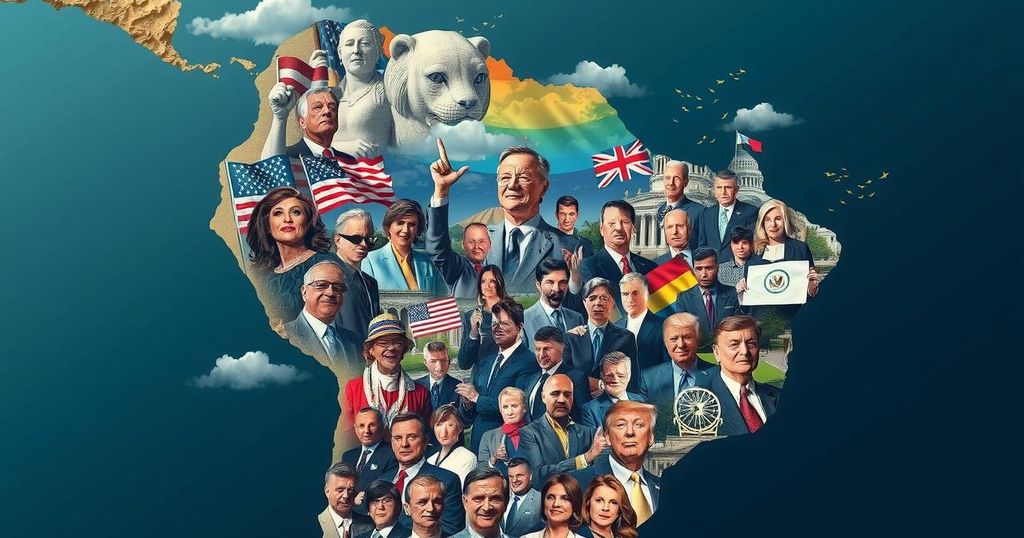Uruguay’s Presidential Election: A Progressive Comeback with Broader Implications
The Broad Front regained the presidency of Uruguay with Yamandú Orsi defeating Álvaro Delgado 52-48 in a runoff election. This victory, despite high approval ratings for outgoing President Lacalle Pou, suggests a successful strategy for re-engaging rural voters, which may serve as a model for counteracting rising right-wing movements in other countries.
In the latest political developments across Latin America, the progressive Broad Front has regained control of Uruguay’s presidency, marking a significant shift in the political landscape. Yamandú Orsi emerged victorious in a tight runoff against conservative candidate Álvaro Delgado, securing 52% of the vote compared to Delgado’s 48%. This victory comes despite outgoing President Luis Lacalle Pou’s high approval ratings, showcasing Orsi’s effective strategy to reconnect with rural voters who previously supported the Broad Front.
The implications of Orsi’s win extend beyond Uruguay, as it provides a potential model for progressive coalitions aimed at counteracting the rise of right-wing movements globally. These movements have capitalized on the disparities between urban and rural populations, a divide that Orsi’s campaign successfully bridged by restoring rural support.
Uruguay’s political dynamics are further underscored by the Broad Front’s previous dominance from 2004 to 2019, which was disrupted by significant losses in rural regions during the last election. The coalition’s ability to realign itself with these crucial voter demographics illustrates a successful adaptation to the changing political climate.
In the context of evolving political frameworks in Latin America, Uruguay’s recent elections highlight the critical shift back to a progressive coalition. The Broad Front, having lost its grip on power in prior elections primarily due to rural voter discontent, has now strategically reclaimed the presidency through an effective campaign that resonated with previously disengaged rural electorates. Understanding the regional dynamics, including rising right-wing populism, elucidates the significance of this victory and its potential impact beyond national borders.
In conclusion, Yamandú Orsi’s victory represents a pivotal moment for the Broad Front in Uruguay, as it navigates the challenges posed by growing conservative movements. This comeback not only reinforces the coalition’s relevance but also sets a precedent for similar efforts across Latin America. As political landscapes continue to evolve, Orsi’s approach to winning back rural support offers valuable insights for other progressive movements facing similar adversities.
Original Source: brazilian.report




Post Comment